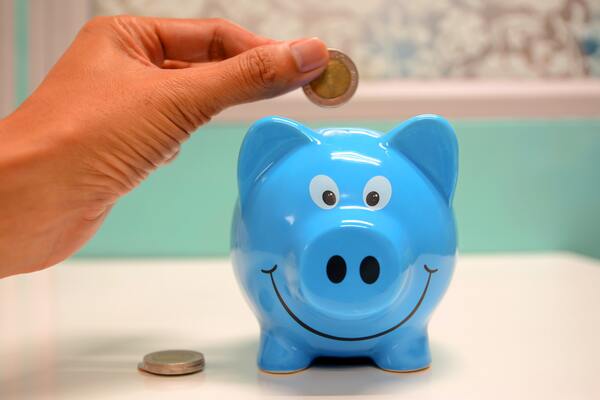If you are thinking about managing your money effectively, you may have asked: how much should I have in an emergency fund?
Getting some emergency savings is a great way to prepare for unexpected expenses, especially when something goes wrong like a car breaks down or your plumbing springs a leak.
We’ll explain how to build an emergency fund and how much money you should put into it.
What is an emergency fund?
An emergency fund will help you prepare for unexpected expenses. How will you deal with large and unexpected bills?
What do you do if your pipe leaks or the exhaust pipe falls out? These unexpected happenings can be bad and costly, but having a well-loaded emergency fund can assist you to alleviate the situation.
How to create your fund
While it’s a good idea to set up an emergency fund as soon as possible, it’s best to stick with what you can afford and try to save money regularly.
It is more effective to save regular small amounts than to move a large amount into your savings here and there.
This is because you get into the habit of saving and not spending your money. It also allows you to plan your budget from week to week or from month to month.
If that’s not possible, save as much as you can. Each small contribution is important to building your emergency fund.
Just like saving for a wedding or a new car, figure out how much you need to save and set up a fixed savings payment or direct deduction for the amount you need.
You should keep a picture in your mind of your final objective. Your emergency fund may be to prepare for a repair or break down of an expensive item like a boiler or your car. Focusing on your goal will keep you from the temptation of mismanaging your money. Using a chart to monitor your saving can help you visualize your saving and spending.
If you have debts, you can decide which is better: pay it off first, or save and pay it off at the same time.
How much is enough for emergency savings?
Everyone should be prepared for unexpected expenses by regularly saving money for things like a leaky roof or faulty central heating.
However, it is not necessary for all your savings to be put aside for an unexpected emergency.
It is often a good idea to portion out your savings into different uses. You will need to keep some on hand for emergencies, but also put some into places where your money can accumulate.
How much should I save?
You want to be able to pay for unexpected repairs, but it is important to have enough money to last a few months in a difficult situation.
Let’s say you’ve lost your job or separated from your partner and need time to get back on your feet. In this situation, you will need a significant amount in your emergency fund to get you back on track.
It is worth considering the financial requirements of any emergency situation, from small household repairs all the way to a major upheaval in your life.
Decide if you need to save a little more than you want
Postponing 3-6 months is worth the cost – When saving, sometimes it isn’t enough we have to need to use what we have.
If you don’t, you may want to consider increasing your savings in case of an emergency.
Here are some scenarios in which increasing your savings can benefit you:
- During a recession.
- While working in an industry where job loss is common.
- If your income is not stable.
- If you are retired.
Saving Something is better than nothing
Many people assume that they cannot save enough money for an emergency fund. Don’t be put off by having too little to contribute, you shouldn’t give up on saving.
You can gain a good emergency fund by saving small amounts regularly, such as each week or month as you are paid. If you continue in the same spirit, you will reach your goal in time.
The important thing is that you are getting into the habit of putting your money away today to benefit yourself later.
- For example, let’s say you invest $25 a week in an emergency fund. After two years, you can save $2,600.
- Increase this amount to $50 per week and your savings can be as high as $5,200.
- Adding $75 a week to your savings, and you’ll soon have a kitty of $7,800.
If money is tight, start small
For example, if you save only $3 a day, you can make $1095 a year. When you get used to saving, you make progress and add up small amounts quickly.
Consider your needs
A good rule of thumb to secure a solid financial cushion is to have three months of necessary spending in a savings account. That means, in case you lose your payday job, for instance, it will assist you to earn three months to find a new job.
If you use $1,000 in one month on your rent, mortgage, food or heating, and other expenditures you can’t do without, you must plan on saving $3,000 for your times of emergency.
But remember that any amount you save will help if you have to pay for something you weren’t expecting.
Where do you put the money?
Emergency money is good if kept in a bank account that can give interest, which you can easily access up to a stupa without taxes or penalties. The problem with putting your emergency savings into mutual funds, stocks, or other assets is that they can become worthless if the funds need to be accessed quickly.
Emergency savings should be kept in an accessible account so that it is not subject to withdrawal penalties, as with an account such as a Certificate of Deposit (CD) or an Individual Retirement Account (IRA).
When should you use this money?
The goal is to use your emergency savings only to cover expenditures straight related to unforeseen emergencies.
By placing a clear amount to be put in this account, you will know how much to even save. When you withdraw from your emergency savings, you know how much you need to put in to fund your account.
When you need to take money from this fund, it is important to start rebuilding it right away. Remember, if you start saving now, the money you save today can go a long way toward meeting your needs when the next emergency occurs.
What to do before you start saving for emergencies
It’s great to start creating your emergency fund, but before you invest your surplus money in it, make sure you’re ready.
If you own:
- Credit Card Debt
- Payday loan
- Unauthorized overdraft
- Mortgage repayment arrears
These should be paid off first. It will save you money in the long term to manage your debts before you start saving for an emergency fund.
This means that if you keep up with your mortgage payments and any other loan you have. Once you can keep your bills under control, you will be in a position to begin contributing towards your savings.





